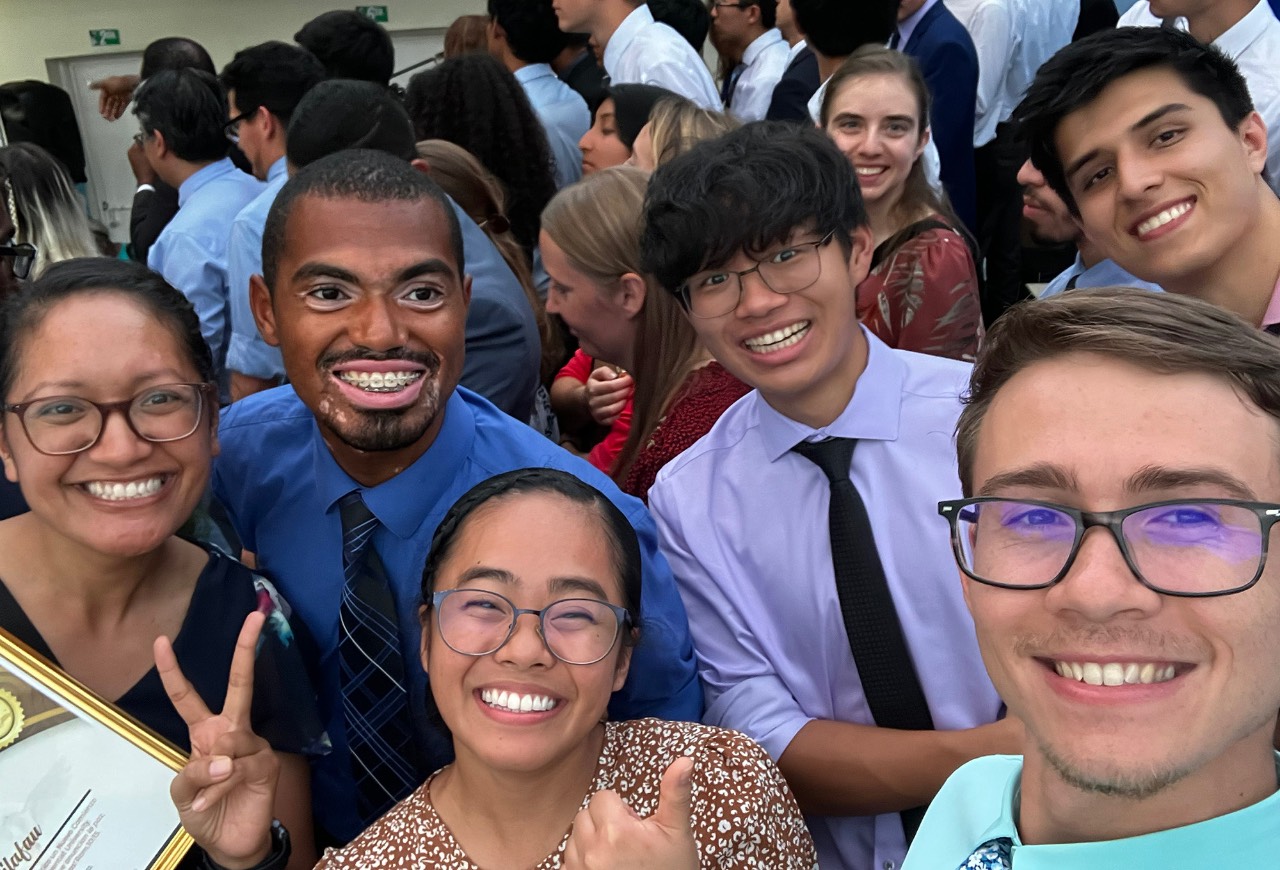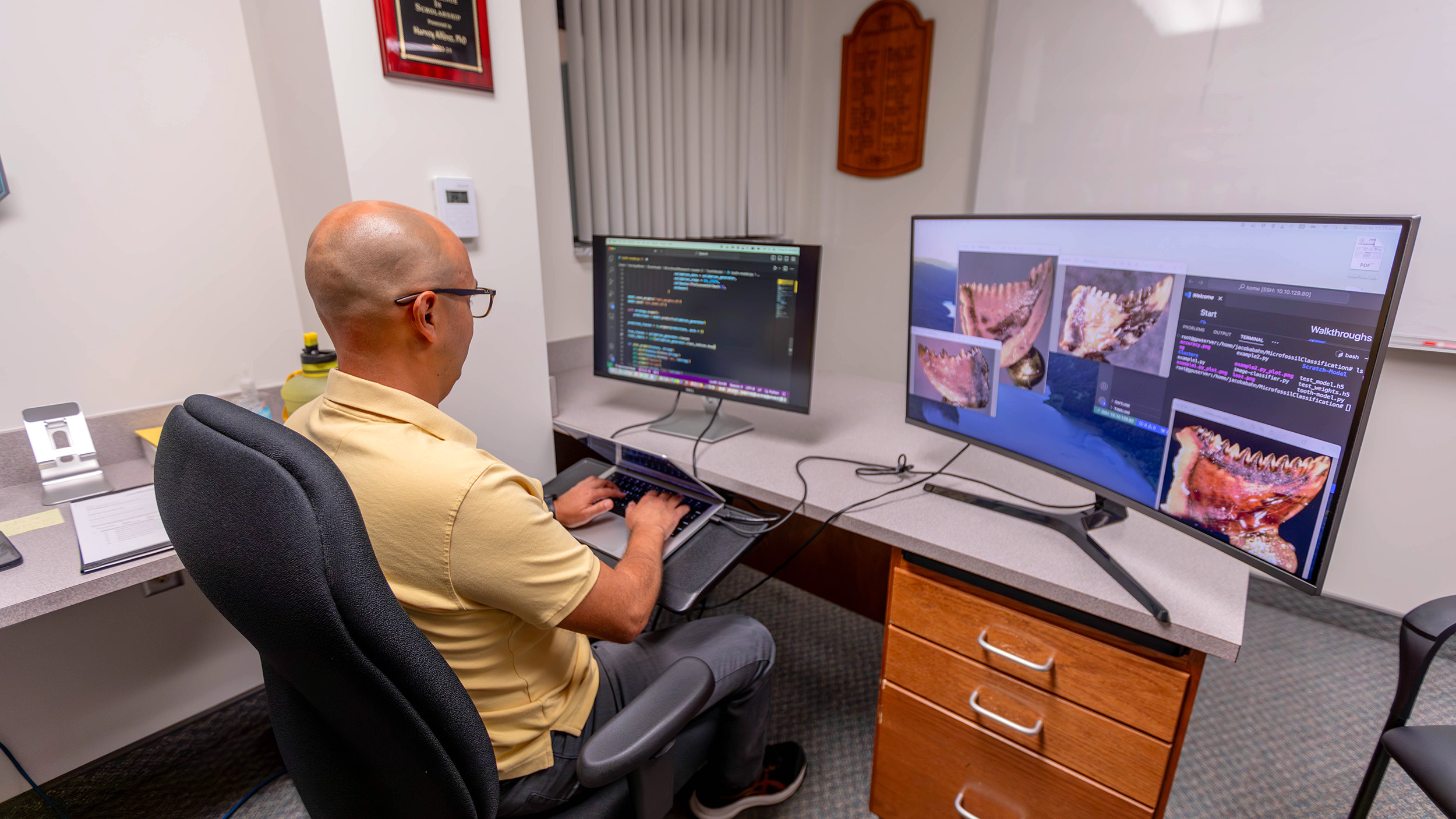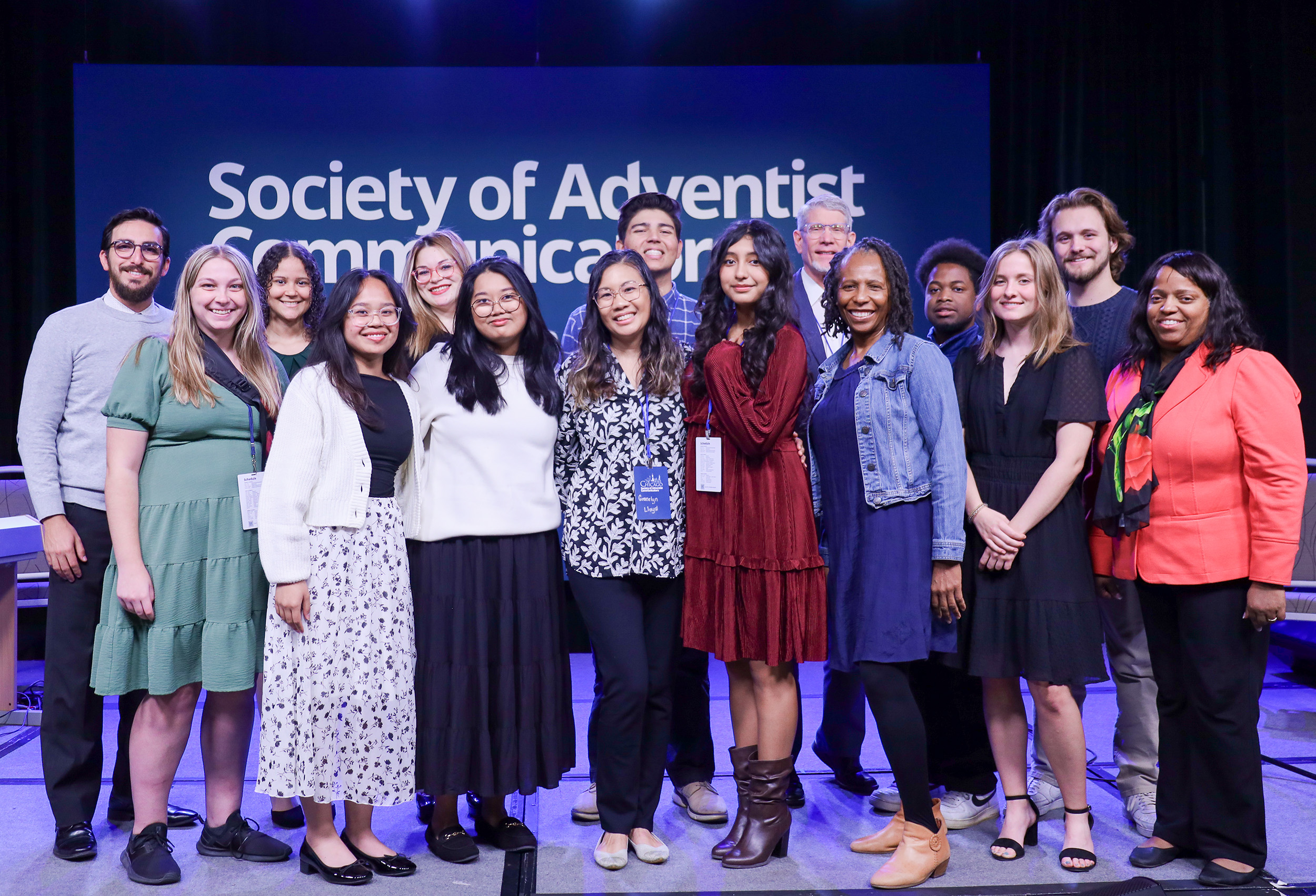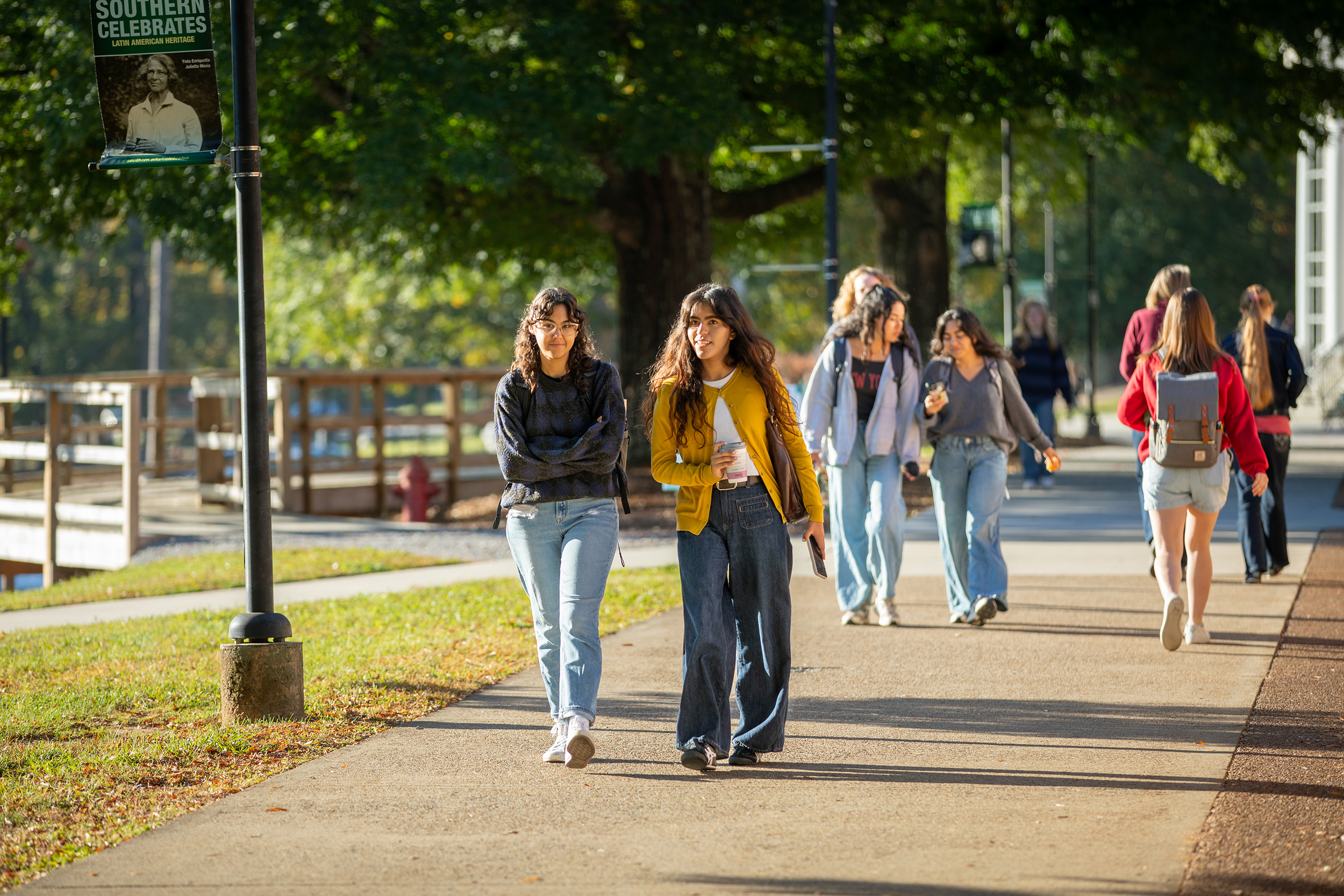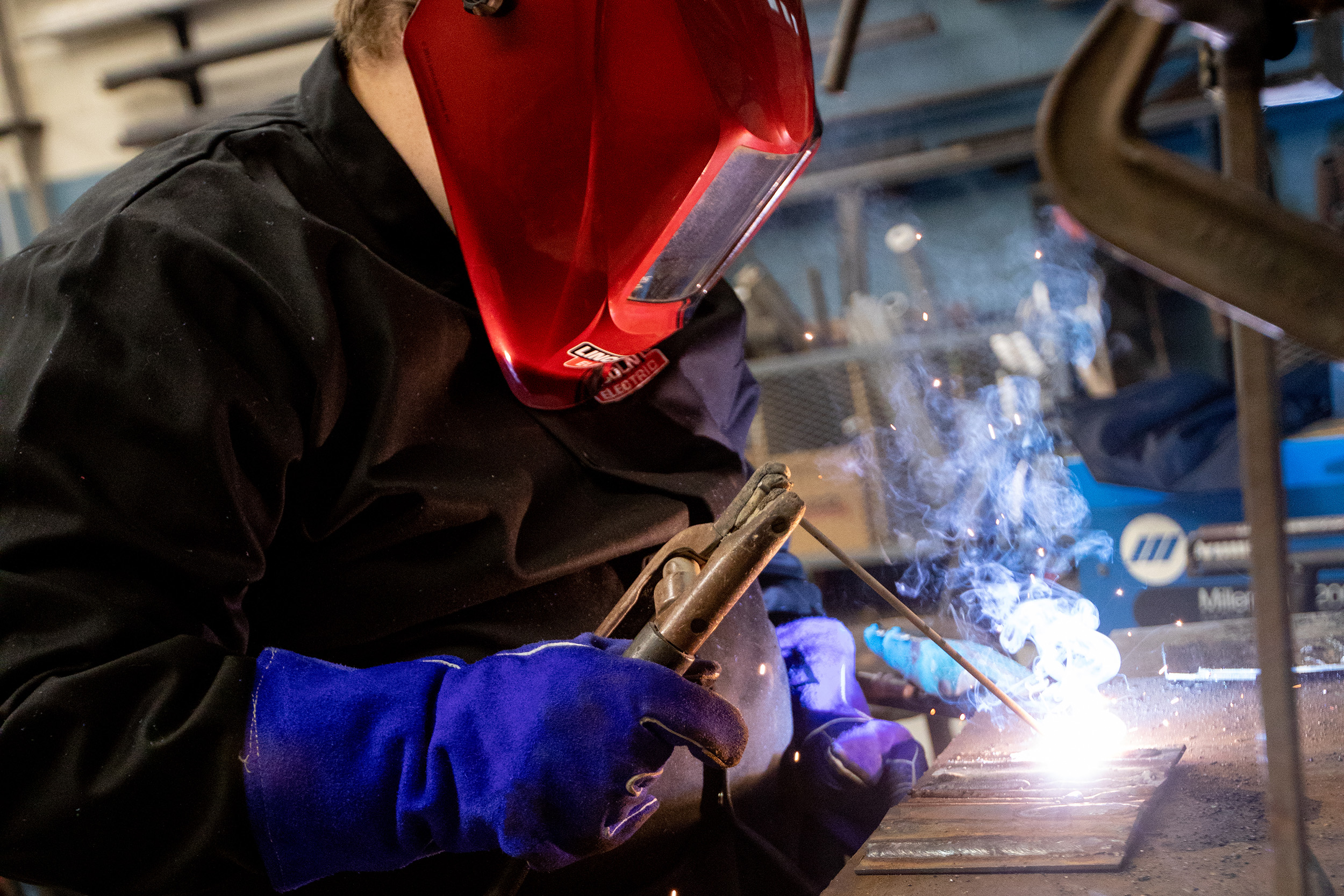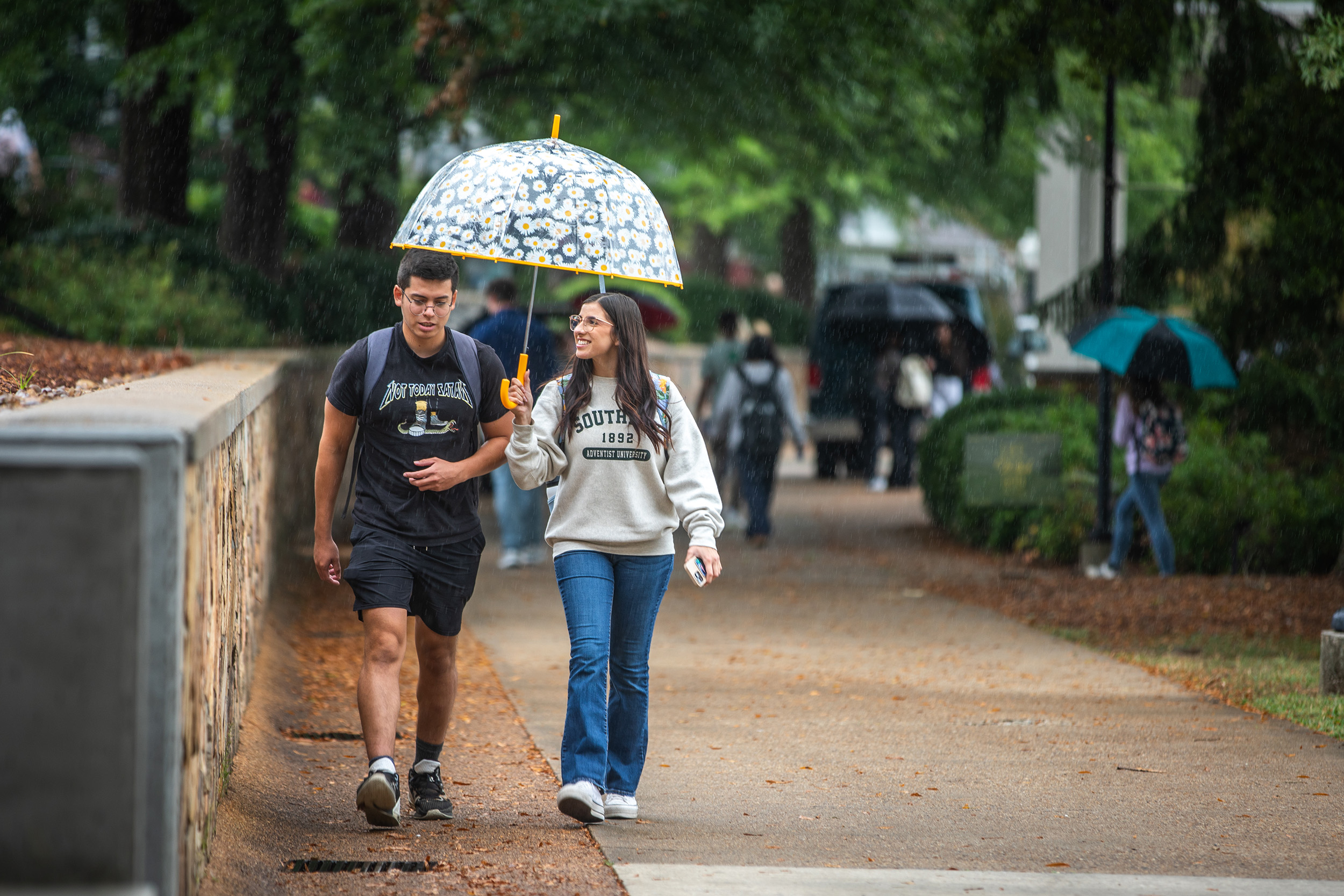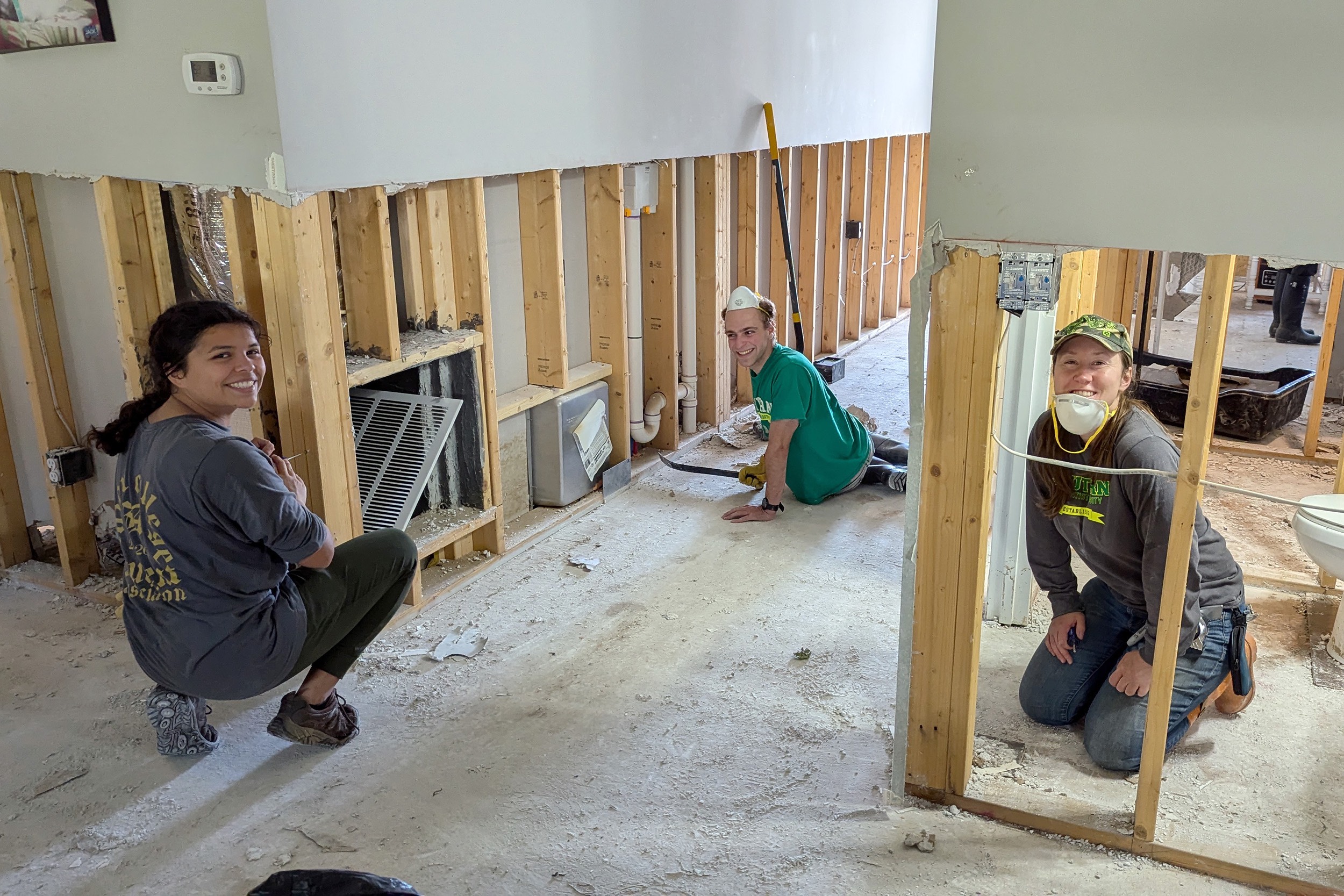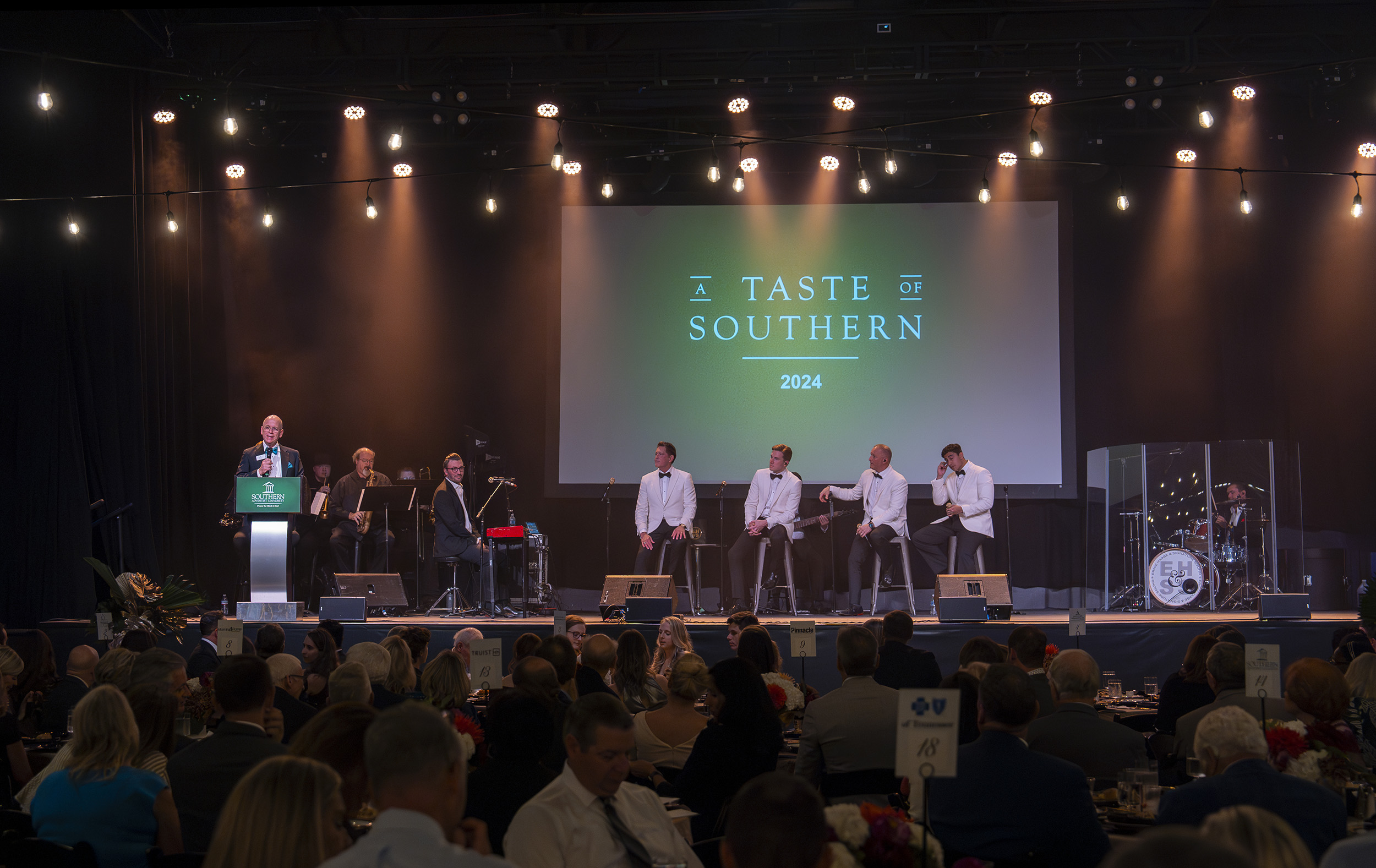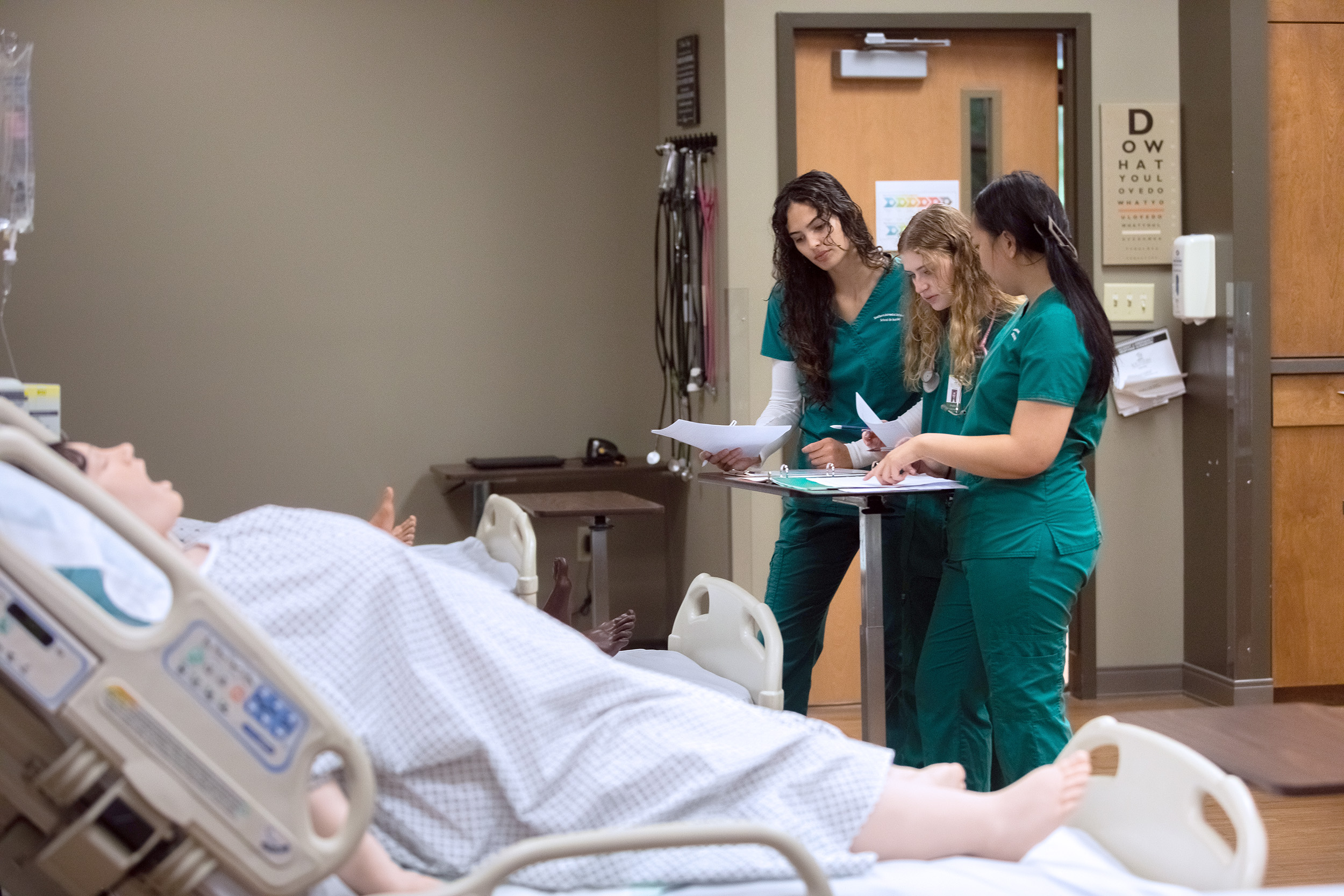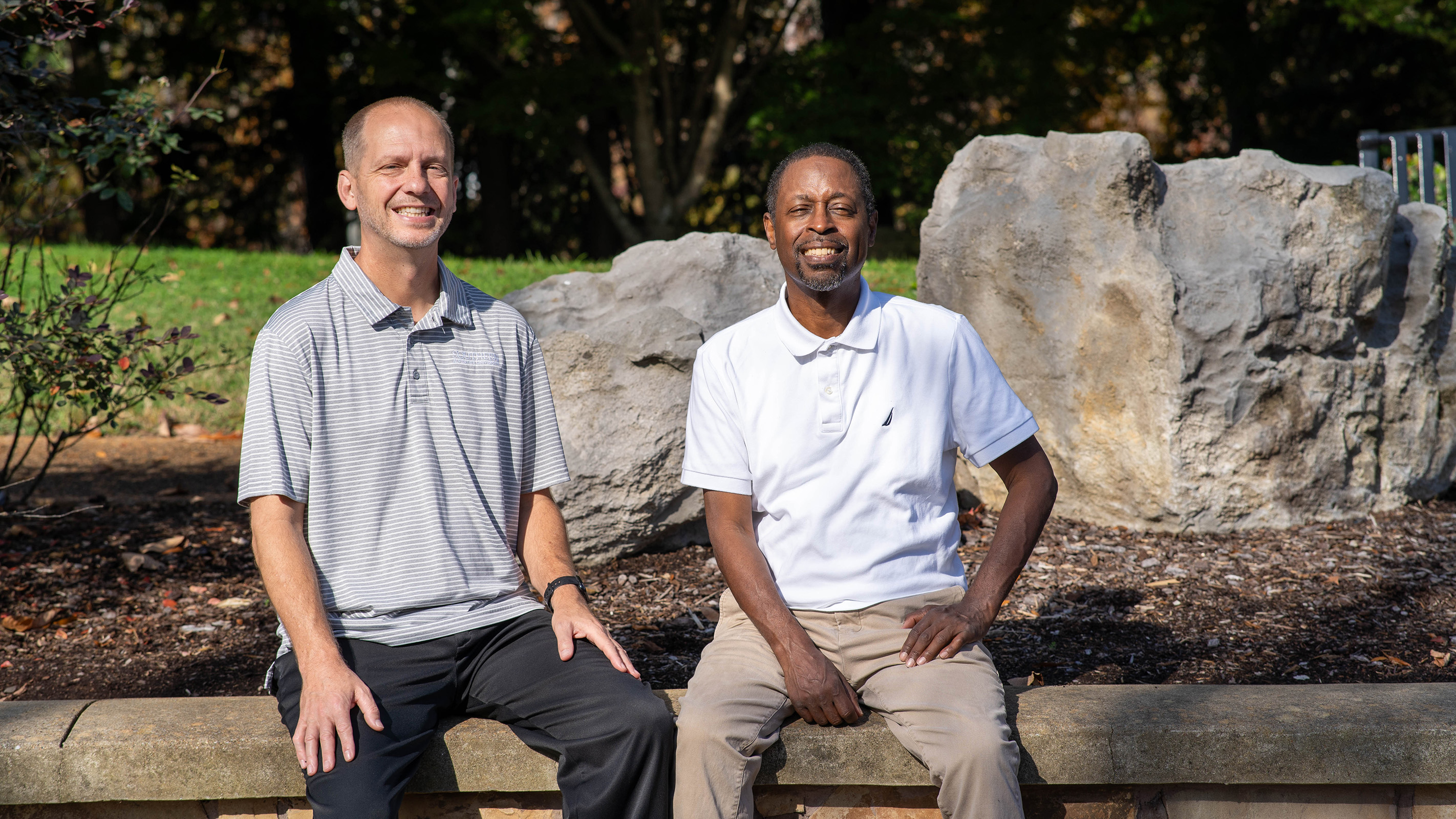
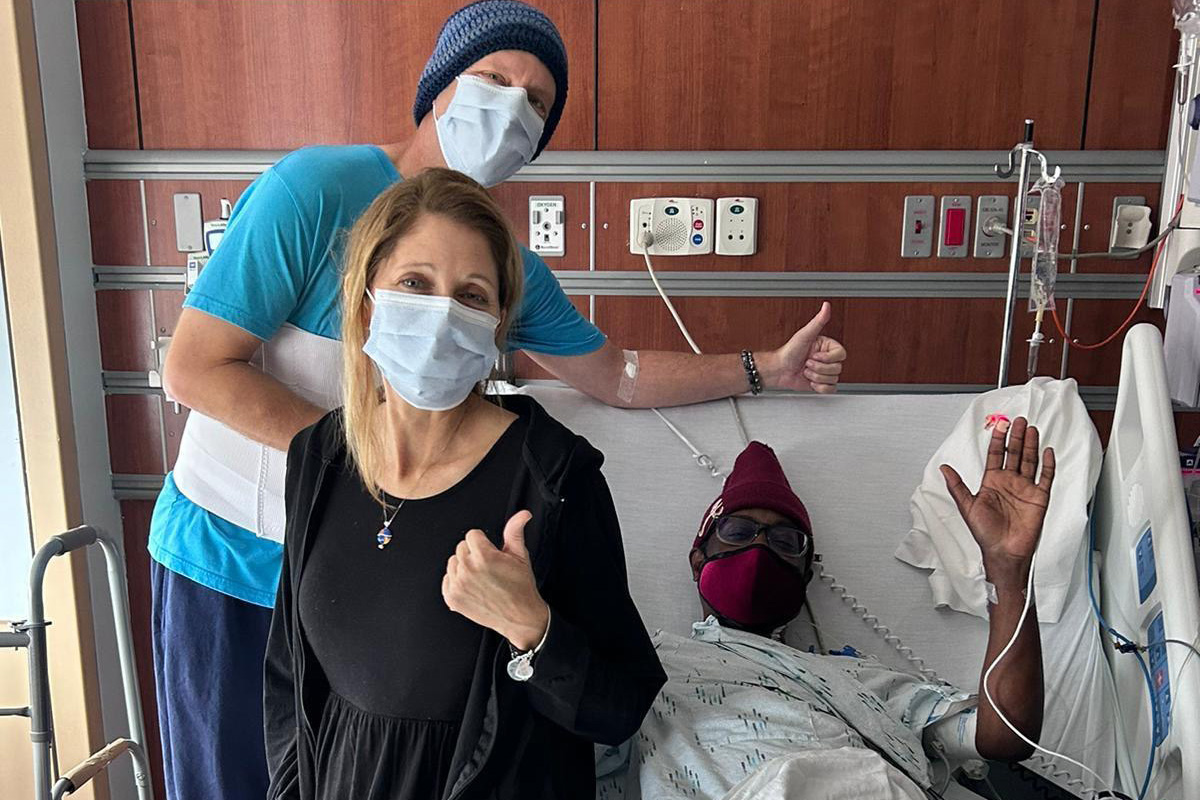
Kevin Pride, '90, and John Willis worked together—with offices side by side—at Southern Adventist University in Collegedale, Tennessee, from 2012-2020, and Kevin is returning to work at Southern again this year. But their friendship extends far beyond those years and experiences. They have a life-saving bond, strengthened through Kevin’s health challenges and the help that John could offer.
Both Kevin and John remember when they first met. It was in 2006 at an Adventist Student Personnel Association (ASPA) conference at Atlantic Union College in Massachusetts. Every year, the conference ends with a banquet. Kevin arrived shortly after the banquet officially started, looked around the room for seat availability and a familiar face or two, and spotted his friend Tim Nelson. Tim was sitting at a table with another man and his kids. When Kevin sat down in the one seat available, he met the other man, John Willis, and his kids.
John, Tim, and Kevin began talking. Eventually, the conversation turned to basketball.
John and Kevin learned they both were high school coaches, and Tim played at Columbia
Union College, now Washington Adventist University.
Much to Kevin’s astonishment, 6-year-old Kassi, daughter of John, could engage the
table in an intelligent discussion about the sport.
“Here I am,” Kevin recounts, “in a conversation with a 6-year-old about basketball. And I was amazed. How did this kid know so much about it?” Thus began Kevin’s tie to the Willis family.
Besides their shared love of sports (even though Kevin was a University of Alabama fan and John was a Boise State fan), Kevin and John spent time over the years conversing about professional and college sports, politics (though they never argued), religion, life, and future hopes. Kevin would meet up with John (and sometimes his entire family) at the ASPA conventions.
When they both wound up at Southern as associate deans in Talge Hall, Kevin soon became like part of the Willis family, despite Kevin turning John’s kids into Alabama football fans. The team’s fight song says, “Go, roll to victory, hit your stride! You’re Dixie’s football pride, Crimson Tide! Roll Tide! Roll Tide!” When they would see Kevin, the kids, now four of them, would cry out, “Roll Tide, Dean Pride!” an affirmation of affection for their beloved family friend.
While working at Southern, the men would sometimes talk late into the night or early morning. Jennifer, John’s wife, would text him, wondering if everything was alright but also assuming the cause of the delay: “Talking to Kevin again, huh?”
Then Kevin had a heart attack.
IN THE HOSPITAL
Kevin was born in 1967 in Birmingham, Alabama, to a loving and close Seventh-day Adventist family. There were four siblings. His father was a postal worker, and his mother was a teacher in Adventist church schools. Kevin graduated from Southern in 1990, and early on he loved sports. Growing up, he played basketball, baseball, softball, and flag football. He also worked with athletics at summer and basketball camps and coached academy basketball. So great was his love of sports that he earned a master’s degree in sports psychology.
The blow came in his 20s when Kevin was hit with Type 2 diabetes, which ran in his family. Uncles had it, as well as some siblings, though not as severely as he did. He had to adjust but kept playing sports and coaching. Later on in their friendship, John learned about Kevin’s disease and genetic history.
The 2016 school year had just gotten underway when Kevin was feeling sick one day. With diabetes, he had to be careful, so he drove himself to the Erlanger East emergency room on Gunbarrel Road in Chattanooga, Tennessee. On the way over, though, he stopped at a Chili’s restaurant to eat. Feeling better, he decided he didn’t need treatment, skipped the ER, and returned home. However, the next morning, he could not get from the bedroom to the couch without falling and gasping for air. His doctor instructed him to go to the ER right away. A short time later, some student deans, who had heard that he was sick called to check on him, quickly drove to his house, and rushed him to the ER.
Kevin had suffered a mild heart attack. He was in his late 40s. John and Kevin both know this happened in 2016, because Alabama’s Crimson Tide football team pulverized the University of Southern California 52-6 in a season opener, on September 3 that year. Kevin had been in the hospital for a week and watched the game from his hospital bed.
Of course, the Willis family often visited him. John recalls his kids saying every day, “Dad, can we go see Dean Pride again?” Several other co-workers also visited him in the hospital and brought him food once he returned home.
THE KIDNEY SITUATION
In the hospital, Kevin was forced to confront his kidney situation, the harsh fact that he would need three stents for the three clogged arteries in his heart, and eventually dialysis and a kidney transplant. He kept the details from others, except his family, thinking he could beat the prognosis.
However, he soon realized how serious it was as he overheard bits and pieces of conversation between the doctors. One said, “If you give him the stents, the dye will negatively affect his kidneys. His kidneys will fail, then he will need dialysis and a new kidney.” Another replied, “If I don’t give him the stents, he won’t be able to breathe.”
“I was in denial,” Kevin admits. “I was not ready for that. I was depressed. I had an uncle who went on dialysis, and he died anyway.”
While Kevin was still in the hospital waiting for the first heart surgery, he was receiving visits from John and his kids. Kevin’s sister had noticed the frequency of their visits, and she said quietly to Kevin, “This man is going to be your donor.” Kevin was astounded, because he was not planning on going that route.
The compromise made by the doctors was to put in one stent immediately, the second stent when needed, and not to touch the third artery because it was small enough to be insignificant. This would cut down on the amount of dye at one time. The stents were placed a year apart, and both were successful. Kevin’s kidneys had not gone into failure.
However, the nephrologist insisted on dialysis immediately. Kevin eventually switched nephrologists, changed his diet, got in better shape, and spent time at an Adventist lifestyle center near Southern. There he learned a lot about managing his health.
But still, sooner or later, he would need dialysis and a new kidney.
SEARCHING FOR A DONOR
Though John knew that Kevin had been sick, he knew nothing about the severity of the situation or his need for a kidney. This is why, in 2018, John was stunned to read a concerning Facebook post.
“HELP KEVIN FIND A KIDNEY. We are searching for a living donor for Kevin Pride. A live donor offers the best success rate and avoids 3-5 years on a kidney transplant waiting list. For more information or to start the screening process, visit…” and it gave the website for Emory University’s kidney transplant and living donor program.
“What? Help Kevin find a kidney? What is going on?” These questions raced through John’s mind as he wondered what was going on with his best friend.
“Kevin is a very private person,” John says. “He never told me about what was happening. It wasn’t until the Facebook post that I knew. I was stunned.”
John immediately offered to be a donor. However, they were not a match. Kevin’s father offered but was too old; his nieces offered but were too young; other family members, with their own health issues, couldn’t do it either. So, Kevin got on a list for recipients at Emory University Hospital Kidney Transplant Center in Atlanta, Georgia, and continued with his life.
Moving forward included two significant changes: transitioning to Orlando, Florida, for a new job, and getting more and more sick until he went on dialysis. Kevin had to convince his family the move was smart, because Emory had provided excellent care. AdventHealth in Orlando also had a stellar transplant reputation, and Kevin envisioned that after the transplant, his caregivers (his sister and brother had already decided to care for him when the time came) could stay with him at no extra cost. At Emory, housing after the transplant would have been very expensive.
While continuing to work in Orlando, his kidneys were getting worse and worse, but Kevin was hiding it: throwing up, dry heaving, nausea, vertigo, and all of the other symptoms that accompany those issues. He was still in denial. Later, the office staff for Kevin’s primary doctor told him that his glomerular filtration rate was the lowest they had seen for someone who was still working and not on dialysis. Kevin was added to the donor list at AdventHealth Transplant Institute before his kidneys failed. A donor was found but then fell through, so Kevin was back to waiting.
THE KIDNEY CREW
It was in May of 2021 at Kassi’s wedding (yes, the little girl who had befriended Kevin at the banquet when 6 years old) that John and Kevin talked about a different option: donor-pairing, which is when two or more pairs of living donors and recipients exchange kidneys. Hence, everyone receives a compatible match. Though John wasn’t a match for Kevin, he would donate his kidney to someone else, freeing another person who was a match for Kevin to donate to him.
One Sabbath morning in 2022, Kevin was rushed to the ER for kidney failure. AdventHealth
in Orlando had the pairing program and the suitable matches, and after extensive testing,
the four operations took place on January 18, 2023.
Despite the risks of major surgery for all of the recipients and donors, John never
hesitated.
“Central to my faith in Jesus,” he says, “is this sense of community. We are called to help those around us. If you are to love your neighbor, even the stranger within your gates, then how much more so your friend? Especially your best friend?”
He adds, “I know that Kevin would have done the same for me.”
Thus, Kevin and John went to surgery on the same day. The operations lasted two to four hours each Recovery, of course, took a lot longer. When John’s boss asked how long he’d be out, John naively answered, “About two weeks, I think.” It was more like six weeks, with incredible pain at times.
“With each sneeze or cough,” he said, “I’d double over. Glad that’s behind me now.”
Except for feeling more tired at night, John has pretty much recovered. Kevin, whose situation is more complicated, is nevertheless doing very well. He started a boys’ basketball team at Bass Memorial Academy in Mississippi and is returning to Southern as a dean in Talge Hall in Fall 2024.
“As I was in bed, just after having received my kidney,” Kevin recalls, “I was thinking about the donors, those who suffered that I might live. We were all on the same hospital hall, relearning how to walk and dealing with the pain. But I was there because of a need. The others were there because of a gift that they voluntarily gave me. How could I not think about the cross and what Jesus suffered for us so we could live—eternally?”
As part of the transplant program, it is a policy that the donors and recipients remain anonymous to each other. However, Kevin, John, and the other donors and recipients kept running into each other in the waiting rooms. They soon figured out what they were each doing there and became friends. Even today, they call themselves “The Kidney Crew” and stay in touch.
Kevin’s friendship with John has remained strong, as well. When John’s children see Kevin, they still call out, “Roll Tide, Dean Pride!”
And Kevin, for sure, is thankful to hear it.
The views and opinions of campus guests do not necessarily reflect the official policy or position of Southern Adventist University. An individual's or group's invitation to speak or present on campus should not be regarded as a university endorsement of their philosophies and beliefs.
